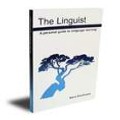We are all capable of correctly pronouncing the sounds of any foreign language. All humans have the same physiological ability to make sounds, regardless of ethnic origin. However, mastering the pronunciation of a new language does require dedication and hard work. Chinese at first represented quite a challenge.
When I wanted to master pronunciation I would spend hours every day listening to the same content over and over. I worked especially hard on mastering Chinese sounds with the appropriate tone. I tried to imitate while listening. I taped my own voice and compared it to the native speaker. I practiced reading in a loud voice. Eventually my ability to hear the differences between my pronunciation and that of the native speaker improved. I would force my mouth to conform to the needs of Chinese pronunciation. I would also work on the rhythm of the new language, always exaggerating and even accompanying my pronunciation with the appropriate facial expressions and gestures. Eventually I was able to achieve a near native quality of pronunciation.
Once I was able to pronounce individual words and phrases satisfactorily, I would find it easier to understand content not designed for the learner: in other words, real authentic material. As my Chinese improved, I particularly enjoyed listening to the famous Beijing Xiang Sheng comic dialogue performer Hou Bao Lin, with his colourful Beijing rhythm of speech. In recent years, to maintain my Mandarin, I sometimes listen to CDs of famous Chinese storytellers, like Yuan Kuo Cheng, narrating classic novels such as The Romance of the Three Kingdoms. The storytelling art in China is highly developed and when I listen to one of these CDs I thoroughly enjoy being transported back to a bygone era.
After struggling though the frustrations of confronting such a different language I was soon able to enjoy my learning. Within eight months of starting my studies, I could appreciate essays by intellectuals and novels by Chinese writers of the 1930s like Lao She and Lu Xun. I also became familiar with the writings of Mao Tse Tung and the polemics of the Cultural Revolution. There were many words I did not understand, but it was not my purpose to learn every new word. I was just reading for pleasure and training my mind to the Chinese writing system. I was working to develop my ability to guess at meaning, an important learning skill which develops gradually with enough exposure to a language. I was also absorbing an understanding of the culture.
The world of the thirties in China was far removed from the reality of China in the late 1960s. Pre-Liberation China was full of tragedy, poverty, and uncertainty. China was torn apart by internal rivalries between different political forces and selfish local warlords, while fighting off foreign invasion. These were cruel and hard times. Yet to me, China was fascinating and even romantic. With enough distance in time or space, periods of warfare and struggle can seem heroic. The Romance of the Three Kingdoms, the epic Chinese novel, or the glorification of the knights of Medieval Europe, are but two examples of how legend and literature romanticize periods of terrible human suffering. Chinese society was looking for its place in a world where foreign influence had all of a sudden collided with a complex, brilliant and previously self-contained Chinese civilization in decline.
The Chinese intellectual class that had been one of the main supports of traditional China was now searching for its new role. Some Chinese intellectuals were defenders of Chinese orthodoxy, some were champions of the new revolutionary thought of Marxism, and yet others, like Dr. Hu Shih, were extremely sophisticated explainers of Western philosophy and its relevance to the new China, and even of its relationship with Chinese philosophy.
The historic evolution of China was different from that of Western Asia and the Mediterranean. The power of the Chinese central state proved more durable than the power of Egypt, Mesopotamia, Greece or Rome. As Chinese culture and people spread and mixed with local ethnic groups in South China, no permanent separate states sprang up as was the case in Europe with the interaction of Romans and other peoples. In the North of China, constant invasions and settlement by Turkic, Mongolian, Tibetan and Tungusic peoples were a dominant feature for 2,000 years. Yet throughout this period, the prestige and power of Chinese culture was not permanently challenged. This is in part because of the flexibility of the Chinese writing system, which could be used to represent meaning even if words were pronounced differently. China was able to maintain its unity while absorbing diverse cultural and ethnic elements in different regions of the country.
It is impossible to look at the refined scenes from Chinese paintings of the Tang or Song periods without admiring the high standard of living and sophistication of Chinese society of the time, compared to the lower level of culture at the same period in Europe. It is interesting to speculate what this technically and culturally sophisticated Chinese society would have created under different historical circumstances. But then, change is the only constant of the human condition.
We in the Western world do not learn enough in school about the involvement of Chinese civilization with other parts of the world. The beneficiaries of Chinese culture were not only neighboring East Asian countries, who borrowed heavily from Chinese culture, but also Western Europe. The introduction of Chinese technology to Europe in the Early Middle Ages was instrumental in stimulating progress in technology and navigation.

